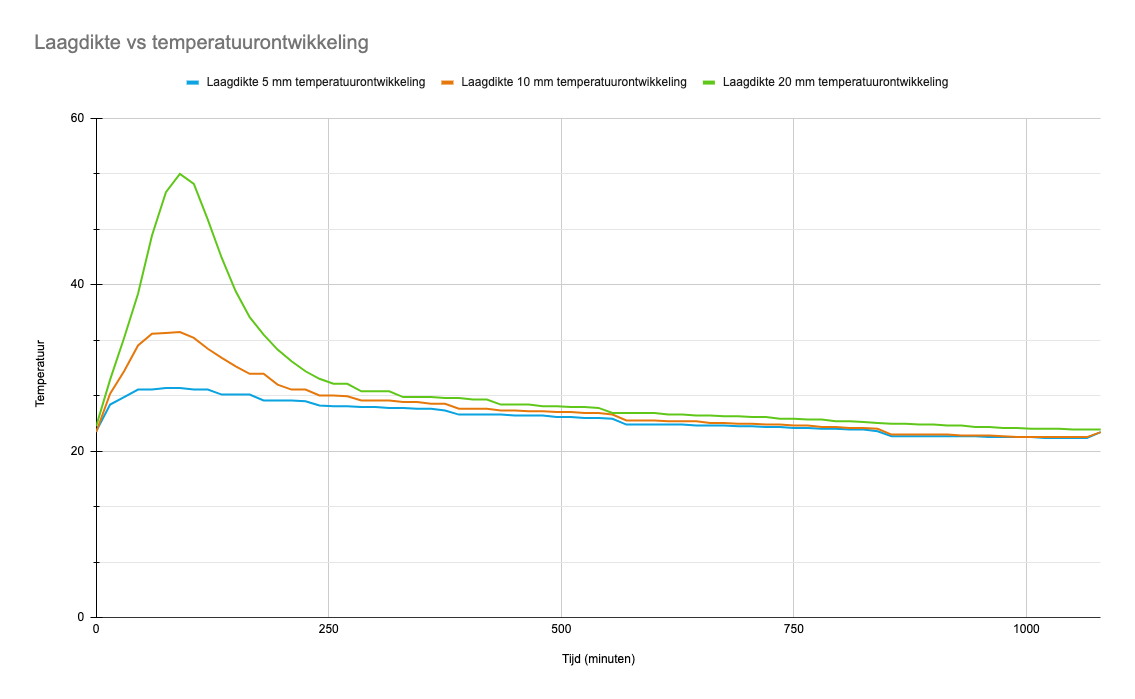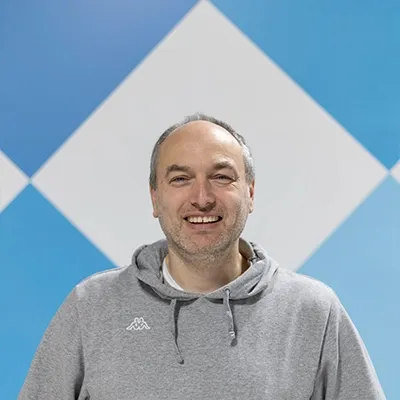How hot does epoxy get during curing and when does the temperature development of the epoxy reach its peak? Our customer service department regularly receives similar questions about the temperature development of RESION epoxy systems. To better understand how this temperature develops, we decided to test it in our research and development laboratory. We measured the temperature of RESION UV Epoxy Resin during several castings in a normal casting environment, as indicated on the epoxy product page. In this article, you will find the test results in graphical form, with an explanation. Do you have any questions about the temperature evolution of epoxy? Please contact our specialists.
Before we dive into the test results, we want to give a good idea about epoxy and its properties.
Epoxy is a synthetic resin that consists of two components. Popularly known as the A component, the B component or base and hardener. When mixed, these components bind together, creating a hard and strong plastic.
Heat is released during the binding and curing process. This causes the epoxy to heat up. This heat is then released into the environment. So during the process, heat is supplied as the hot epoxy, due to curing and heat loss, also heats the surroundings.
As long as more heat is supplied (through curing), the temperature of the epoxy will rise. Always ensure that this heat can escape by not completely covering the casting. For thick castings, it may help to direct a fan along the mould to obtain more cooling.
We tested RESION UV Epoxy Resin for temperature development during the curing process. Below are the properties of this particular product:
We conducted the test in a well-controlled room, our R&D lab. The test we conducted and the conditions of the test are described below:
As indicated, we tested RESION UV Epoxy Resin in layer thicknesses of 5 mm, 10 mm and 20 mm. Our measuring equipment measured the temperature every minute for 1095 minutes (18.25 hours). This is the time until this type of epoxy is manageable.
We put the results in a graph to visualise it:

Heat at the start of the test: 22 degrees Celsius
Heat at highest point: 27.6 degrees Celsius
We see that the 5 mm casting gets the least heat. This is logical, as there is less material present and therefore less energy (heat) is released. Also, there is not really a peak in temperature development here. Due to the quantity of the material, there is therefore a gradual development of heat. The hottest point is reached between 90 and 105 minutes after casting. You can see that development is fastest between 15 to 45 minutes. This is right in the processing time of this epoxy, during the binding of the B component to the A component.
Heat at the start of the test: 22 degrees Celsius
Heat at highest point: 34.3 degrees Celsius
The 10 mm casting logically heats up faster. There is more material so more energy and heat. As a result, temperature development and also curing is faster. In this casting too, we see that the hottest point is reached between 90 and 105 minutes. As with the 5 mm casting, the temperature also increases fastest between 15 and 45 minutes. After this, it decreases and the temperature rises only slightly.
Heat at the start of the test: 22 degrees Celsius
Heat at highest point: 53.3 degrees Celsius
The 20 mm casting was expected to be the hottest. More material means more temperature rise in the casting. In the 5 and 10 mm layer thicknesses, the greatest temperature rise is between 15 and 45 minutes. In this casting, you can see that after 45 minutes, the epoxy still increases considerably in heat. This also happens from 90 to 105 minutes after casting. A clear peak in temperature can be seen at this casting.
We can imagine that an even larger casting will get hotter. This may have consequences such as damage to the epoxy (such as yellowing or cracking) or damage to the mould (such as melting).
Epoxy heats up during curing due to the chemical reaction between resin and hardener. In a 20 mm pour, temperatures can rise above 50 °C.
Epoxy typically reaches its peak temperature between 90 and 105 minutes after mixing, depending on layer thickness and ambient temperature.
Yes, the thicker the pour, the more heat is generated. More material leads to a more intense chemical reaction.
Yes, in large or thick pours, epoxy can overheat, leading to yellowing, cracking, or even damage to the mold.
Pour in thinner layers, ensure proper ventilation, and avoid covering the resin. Using a fan can help dissipate heat more quickly.
Heat is generated as a byproduct of the chemical reaction between resin and hardener. It’s a normal part of the curing process.
Yes, higher room temperatures accelerate curing and can lead to higher peak temperatures in the epoxy.
Here you can find all 1 related articles on this topic. Mis je informatie om aan de slag te gaan met jouw klus? Neem dan contact met ons op.
Do you have a specific question? Call one of our specialists for free advice +3185 0220090
